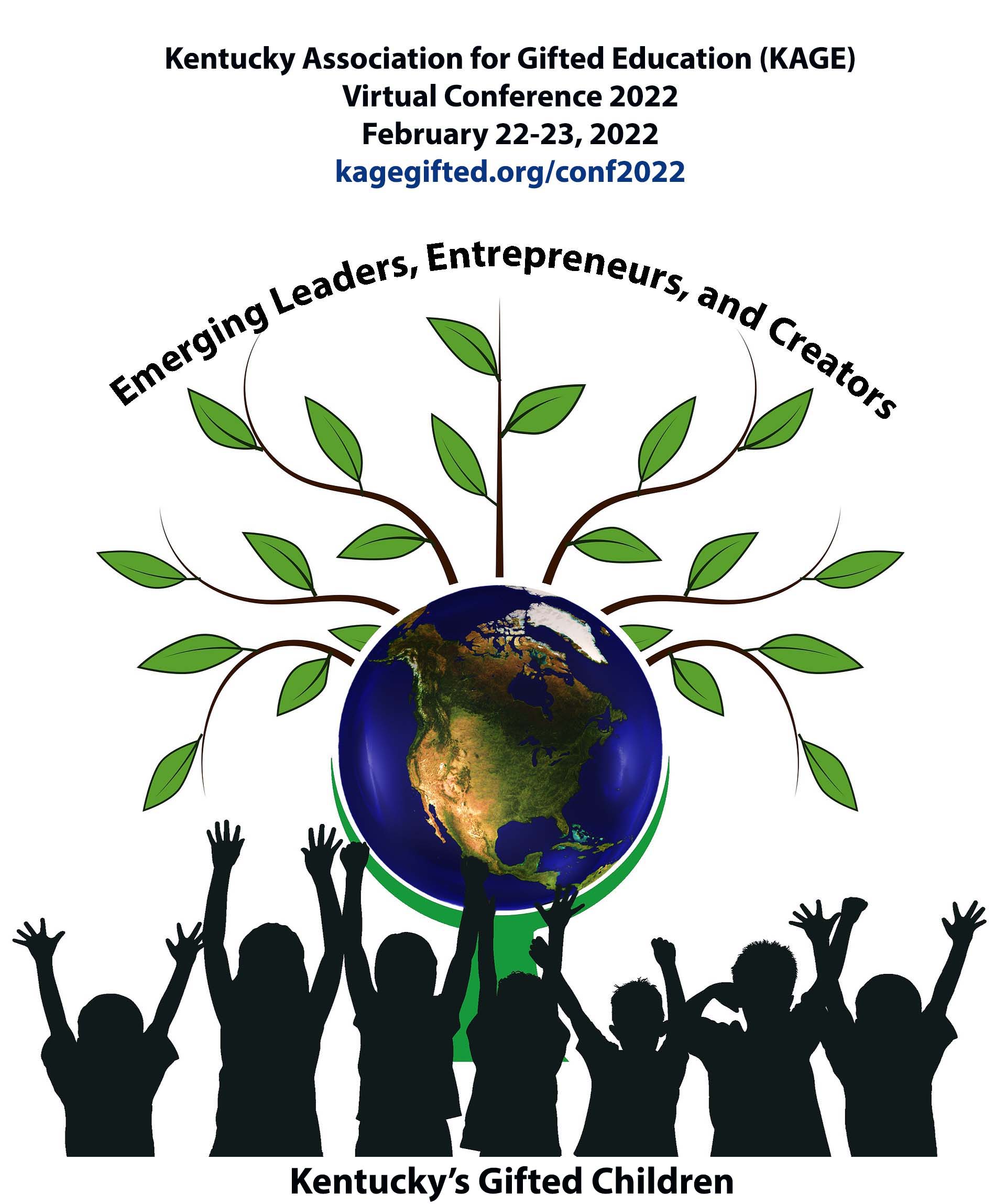
KAGE Conference 2022 Call for Proposals
You are invited to submit a proposal to the 42nd Virtual KAGE Annual Conference. KAGE is looking for presenters with gifted education experiences who are willing to share their expertise with others. The conference will be February 22-23, 2022.
The DEADLINE to submit proposals has been extended to January 6, 2022.
Submit Your Proposal
How It Will Work
These sessions are presented live virtually Tuesday, February 22nd, or Wednesday, February 23rd, using Zoom. Sessions may be 50 minutes long or one hour and 50 minutes long (110 minutes). They will be scheduled during the day beginning at 10:30 a.m. EST (9:30 CST) and ending at 4:30 p.m. EST (3:30 p.m. CST). You will need to be available fifteen (15) minutes prior to your presentation to upload your presentation and check that everything works. If your presentation is accepted, you will be notified in January as to what time you will present along with more information about uploading your presentation. You may also be asked a week or two in advance to participate in an upload practice with KAGE. If you use an internet connection that sometimes crashes, please consider going to a more stable site for the presentation.
Please allow 5-10 minutes for questions at the end of the session. Virtual sessions work best when another person monitors the Chat for questions and comments. Please ask a friend to help you do that.
All presenters must be registered for the conference or registered as exhibitors.
Why You Should Present
The flexibility in a virtual presentation allows for endless formats and presentation gifted education topics. You may have something new to offer or a new twist to an established methodology or a particular strategy or service that has worked well for you. You may wish to highlight an event or service option that has worked well for your students. You might even invite the students to join you in the presentation!
Presenting offers the opportunity to engage with other conference attendees interested in the same subject and application as yourself. It is an effective way to disseminate your work and provides the opportunity to actively engage with others during the conference in a way that networking alone does not. Presentations provide value for attendees who listen, question, and discuss your presentation content with you and for you as you learn from the presentation experience. Take this opportunity to advance your own professional development and that of your peers.
Presentations Areas
KAGE is especially interested in proposals that support the conference theme of “Emerging Leaders, Entrepreneurs, and Creators: Kentucky’s Gifted Children” as detailed below; however, we strongly encourage any proposals that support strengthening outcomes for gifted learners in KY. The following are some topics in which past conference attendees have expressed an interest: gifted assessment and identification, specialized programming, social and emotional needs of gifted learners, and gifted advocacy.
Presenter Bio
If your proposal is accepted, you may be asked to submit a photo and bio information for Socio, the online platform that will be used for the conference.
Last Updated 11/19/2021
Subscribe to the KAGE Listserv